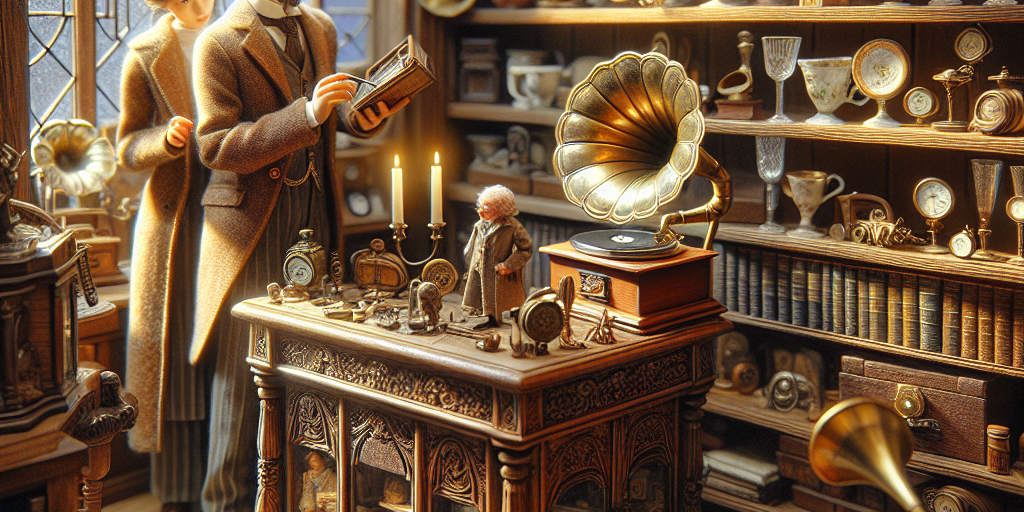Collecting antiques is more than just a hobby; it is a deeply ingrained social and psychological phenomenon that intertwines personal value with historical significance. Across the globe, countless individuals find joy in scouring flea markets, estate sales, and online auctions for relics of the past. But what ignites this passion for collecting antiques? In this article, we will delve into the psychological motivations that drive collectors and explore why we hold such affection for these tangible links to history.
The Connection to History and Heritage
One of the primary reasons individuals are drawn to antiques is their connection to history. Each piece represents a tangible connection to the past, telling stories of different eras, cultures, and human experiences. Collectors often find themselves fascinated by the narrative behind each item—the people who owned it, how it was used, and the historical events it has witnessed. This affinity for history fosters a sense of continuity, bridging the gap between past and present, and allowing individuals to feel part of a larger story.
Moreover, antiques can act as cultural artifacts, reflecting the social norms, values, and artistic trends of their time. This appreciation fosters a profound respect for our shared heritage, as collectors often feel a responsibility to preserve these pieces for future generations. Owning an antique can instill a sense of pride, providing a direct link to the cultural identities and histories we cherish.
The Allure of Nostalgia
Nostalgia plays a compelling role in the psychology of collecting antiques. Many collectors are motivated by a longing for a bygone era—whether it’s their own childhood or a time period they idealize. Antique items often evoke a sense of warmth and familiarity, transporting collectors back to simpler times. This emotional connection can be particularly strong for those who associate certain objects with memories of family, traditions, or loved ones.
Nostalgia also satisfies our human desire for security and comfort. In an ever-changing world, antique collecting allows individuals to cling to the past, offering a sense of stability. The physical act of collecting provides a refuge, creating a tangible space filled with memories and history that can counterbalance the uncertainty of contemporary life.
The Thrill of the Hunt
For many collectors, the journey of finding an antique is as rewarding as the possession itself. The thrill of hunting for hidden treasures can activate feelings of excitement and adventure. This hunt often involves significant effort, research, and negotiation skills, which can engage the collector mentally and emotionally. The anticipation leading up to a purchase can also heighten the emotional reward, making the eventual acquisition feel more gratifying.
This pursuit taps into our intrinsic motivations, such as mastery and achievement. Successfully locating a rare piece after a lengthy search often triggers a rush of accomplishment, boosting the collector’s esteem. In this sense, the act of collecting is not just about the end result (the antique itself) but also about the entire experience that accompanies it.
The Joy of Community
Collecting antiques often fosters a sense of community among enthusiasts. Collectors frequently engage with one another through clubs, fairs, forums, and social media groups, sharing their discoveries and knowledge. This communal aspect provides a platform for interpersonal connections based on shared interests, which can be immensely fulfilling. The relationships formed within these communities often lead to a support network where individuals can seek advice, trade items, or simply enjoy the company of fellow enthusiasts.
Moreover, the act of collecting can serve as a social status indicator. Possessing certain high-value antiques can elevate a collector’s standing within their community, reinforcing feelings of pride and identity. Whether it’s showcasing a prized possession or sharing expertise, these interactions can lead to a deeper sense of belonging.
The Psychological Benefits of Collecting
Engaging in the practice of collecting antiques can also have significant psychological benefits. The act has been linked to increased mindfulness—a focus on the present moment while deeply appreciating the textures and stories behind each item. This mindfulness can serve as a form of stress relief, providing an escape from everyday pressures.
Furthermore, the act of collecting encourages organization and planning skills, as collectors often have to strategize how they wish to grow their collection, budgeting for future acquisitions, and curating their displays. This level of engagement can promote cognitive functioning, enhance planning capabilities, and foster a sense of purpose.
Conclusion
The psychology of collecting antiques intertwines an array of motivations, enveloping collectors in a rich tapestry of history, nostalgia, and community. These treasured items serve as more than mere possessions; they evoke emotional responses, foster connections, and provide a sense of fulfillment that goes beyond the tangible. In a world that often feels transient and fast-paced, the act of collecting connects us with our past, ourselves, and each other, reminding us that some treasures truly stand the test of time.











